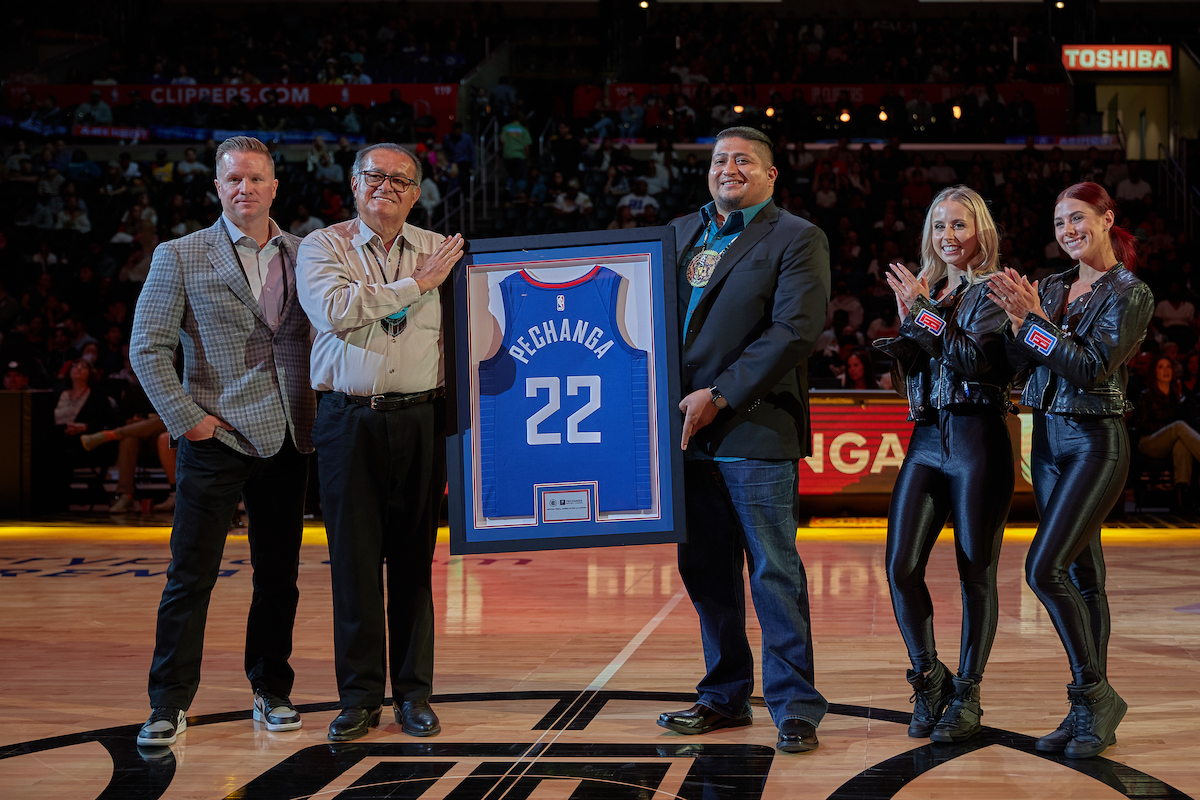
- Details
- By Tribal Business News
LOS ANGELES, Calif. — Pechanga Resort Casino has signed a new multi-year partnership to serve as the exclusive tribal casino of the NBA’s LA Clippers.
The Temecula, Calif.-based casino, an enterprise of the Pechanga Band of Luiseño Mission Indians, announced the deal last week during a Clippers preseason game, during which the team presented a jersey to tribal economic development officials.
Want more news about the Tribal economy? Get the free Tribal Business newsletter today.
The partnership will include community events, Clippers watch parties and in-game promotions, plus signage in Crypto.com Arena, digital and social media activations, broadcast integrations and hospitality elements, according to a statement.
“We’re thrilled to partner with Pechanga Resort Casino and work together to serve our fans and community,” Clippers Chief Global Partnerships Officer Scott Sonnenberg said in a statement.
The Pechanga Band also plans to spotlight tribal culture during a Nov. 6 home game to highlight Native American Heritage Month.
“We’re very excited to partner with the LA Clippers and support our broader Southern California community,” said Andrew Masiel, Sr., president of the Pechanga Development Corporation. “This partnership will also mean more opportunities for Pechanga’s guests to truly unique events and experiences in L.A. sports. Our Tribe’s roots run deep through Southern California and like us, the Clippers are committed to using their platform to make a meaningful difference.”
Pechanga Resort Casino is an active sponsor of sports teams and venues. Other athletics partnerships include deals with Angels Baseball, the Los Angeles Rams, the Los Angeles Chargers, SoFi Stadium, the Los Angeles Lakers and the University of Southern California.
The tribe also has the naming rights to the Pechanga Arena San Diego.
Help us defend tribal sovereignty.
At Native News Online, our mission is rooted in telling the stories that strengthen sovereignty and uplift Indigenous voices — not just at year’s end, but every single day.
Because of your generosity last year, we were able to keep our reporters on the ground in tribal communities, at national gatherings and in the halls of Congress — covering the issues that matter most to Indian Country: sovereignty, culture, education, health and economic opportunity.
That support sustained us through a tough year in 2025. Now, as we look to the year ahead, we need your help right now to ensure warrior journalism remains strong — reporting that defends tribal sovereignty, amplifies Native truth, and holds power accountable.
 The stakes couldn't be higher. Your support keeps Native voices heard, Native stories told and Native sovereignty defended.
The stakes couldn't be higher. Your support keeps Native voices heard, Native stories told and Native sovereignty defended.
Stand with Warrior Journalism today.
Levi Rickert (Potawatomi), Editor & Publisher
